The age-old Marvel problem is back as the publisher’s Legacy enterprise slowly draws to a close with the anniversary issue of Iron Man while the ‘Fresh Start’ initiative gets into full swing the very same week with Black Panther #1. Plus, we’re slowly moving towards another event, Infinity Wars, with all the tie-in issues on the way.
Hopefully, Marvel will be able to match the consistency of DC, who is still publishing plenty of titles from 2016’s Rebirth line. While we wait to see what happens on that front, The Marvel Rundown contains an analysis of the most important titles of the week: Bendis’ big Marvel departure with Invincible Iron Man #600 and Black Panther #1!
Invincible Iron Man #600
Written by Brian Michael Bendis
Illustrated by Alex Maleev, Andrea Sorrentino, Andrew Hennessy, Daniel Acuña, David Marquez, Gerry Alanguilan, Jim Cheung, Leinil Francis Yu, Mark Bagley, Marte Gracia, Mike Deodato Jr., Scott Hanna, and Stefano Caselli
Colored by Guru-eFX, Marcelo Maiolo, Rachelle Rosenberg, and Romulo Fajardo
Lettered by VC’s Clayton Cowles
Alexander Jones: AJ, Brian Michael Bendis’ huge Iron Man finale is here. However, after closing the scattershot assortment of vignettes I’m not so sure that’s a bad thing. What are your first impressions of the issue?
AJ Frost: Hey Alex. Let’s get this out of the way: Brian Michael Bendis is one of the most significant figures in contemporary comics. He’s introduced many interesting and diverse concepts to Marvel, it would be impossible to recount the litany here. On the other hand, despite his prodigious contributions, much of his work as of late has been a tad too enamored with its own maximalist use of the form. Too many words, too many plot beats, just too much happening. And Invincible Iron Man #600 is, for better or worse, not only his swan song for Marvel but the culmination of Bendis’ best and worst traits as a writer. I really tried to go into this title fresh because I’ve had difficulty with Bendis’ work in the past. And while far from perfect, it does have good moments.
Jones: This installment for me works better as a series of things loosely Iron Man related rather than a milestone of an ongoing series featuring the swan song of one of the most acclaimed creators for a huge publisher. Some of the scenes in the script border on the worst writing Bendis has ever written while others feature a few great moments as you had suggested earlier. At the endpoint of a huge run of comics, you would typically expect a creator to narrow the focus but this is certainly not the case here.
Frost: Yeah, I’m with you there. This book is more a series of vignettes than a one flowing story. Bendis can be a little too didactic for his own good–there are moments triggering an eye-roll when the dialogue veers away from how people naturally speak to what a producer is a corner office in Hollywood thinks people say. The idea gets frustrating on the micro level. On the other hand, Bendis has been doing this so long he always brings something to the macro. He understands the psychology of Iron Man, which produces good moments, but can’t always stick the perfect landing.
Jones: This script should serve as a warning sign to Marvel editorial. They should probably not have greenlit something ill-conceived and indulgent for an anniversary issue like this. This story does not start off on the right foot with the endless narration from Tony’s A.I. which has been one of the more tedious parts of Bendis’ Iron Man run. From the nauseating first page, the focus of the script meanders all the way towards Infamous Iron Man and Civil War II. I’m just not sure how someone saw the script for this and didn’t think about giving it another pass.
Frost: Bendis is super loquacious. It is too easy to let Bendis off the hook for just writing and writing and writing. Give the reader the chance to breathe and have the time to soak in what’s happening. Not every panel/page needs to be stuffed with dialogue over huge splash pages. It would have been more appropriate for more self-reflection here, even if Tony is A.I.
Jones: In this unwieldy narrative I would say there are two things which worked, the first being the introduction of Riri William’s huge subplot which bears a shocking element from a previous Marvel series as well as the Infamous Iron Man story. Aside from those moments and the final few pages being somewhat endearing, I don’t think I would recommend installment to anyone. I would, however, suggest huge Marvel fans to lead through it because of the really odd surprises and to see a few favorite Bendis art collaborators turn in good work–what did you think of the art?
Frost: The art fluctuated from being truly gorgeous to standard mainstream stuff. But the stuff here that worked the best were these big, multi-panel pages which felt like experimental collages. I really dug those. Otherwise, it was kinda meh. Not good or bad, just okay.
Jones: While his art is usually not to my taste, Mark Bagley’s contributions worked really well for me in this context. It is interesting to see him drawn the newer corners of the Marvel Universe. Stefano Caselli is kind of given the short of the end of the stick as he draws the scenes coated in words. Andrea Sorrentino’s contributions really surprised and delighted me. I think Alex Maleev is the start of the show with his incredible splash page showing off his unique approach to comics. It was good to see Bendis work with Leinil Yu again who drew such a large portion of his Avengers work along with Mike Deodato Jr.; Daniel Acuna contributes solid work here as well. While some of the artistic contributions are too brief for my liking, I enjoyed the issue as a whole artistically.
Frost: It is crazy to think how much Bendis has contributed to the Marvel mythos. Despite any criticisms or reservations, I have about his work here, it can’t be stressed enough when he is really on his game, he creates top-tier comics. Even when it doesn’t land as well as it should, it’s still fantastic entertainment. So, I applaud Bendis for all his hard work at Marvel and for bringing a lot to the company. While this title is objectively a monumental achievement, it only halfway hits the target.
Jones: I would give this a SKIP and like to add that Bendis leaving Marvel is good for both parties. If this issue proves anything it is the idea that Bendis needs to realign his focus and trim his scripts down. Hopefully at DC Bendis will start to go back to storytelling fundamentals and make me realize why I loved his work years ago.
Frost: I’m with you on the last part, but I’m more of a WEAK BROWSE. This is Bendis, this is a big issue, and it’s an important piece of Marvel publishing history for better or worse. I think readers should check it out if it piques their interest. I wish Bendis much luck at DC and look forward to his work there in the coming months and years.
Final Verdict: AJ says WEAK BROWSE, Alexander says SKIP.
 Black Panther #1
Black Panther #1
Written by Ta-Nehisi Coates
Illustrated by Daniel Acuna
Lettered by VC’s Joe Sabino
Alexander Jones: After finishing the new entry into Ta-Nehisi Coates’ Black Panther run, I think it is safe to say the writer has struck a creative peak here and does a phenomenal job letting artist Daniel Acuna show off his amazing strengths as a penciller. Compared to Coates’ debut, this is a shocking transition! AJ and Joe, what were your first impressions of 2018’s Black Panther #1?
AJ Frost: The creative team definitely amped the Wakandan spirit up to 11 and then some! To be honest, my first impressions were: “What the hell is happening?” because when I think of Black Panther, I’m usually oriented on Earth ya know? On the lush forests and tech of Wakanda. Here, we’re in space, we’re in the vibranium mines of some far-off galaxy, and everything is thrown for a loop. So, the first impression is one of simply trying to figure out what’s going on.
Joe Grunenwald: This was my very first Black Panther comic, so I expected to be playing catch-up to some degree. It definitely seems like I missed a lot in the first volume of Coates’s run, and I have a lot of questions, but at the same time, it felt really accessible. The first page establishes the Intergalactic Empire of Wakanda and their motivations clearly, and then the issue hits the ground running.
Frost: Intergalactic Wakanda seems so wrong, but Coates runs with the concept and it makes it work.
Grunenwald: I remember shaking my head at it a little bit when it appeared, albeit briefly, in the Marvel Legacy one-shot, but given the explanation for how it came to be I think it’s kind of fascinating.
Jones: I think this is supposed to be weird and exciting. In the past, I have thought Coates to occasionally rely too heavily on narration so this was an extremely pleasant surprise for me. The new setting already nailed some great twists and reminded how fun it was to read Dan Abnett and Stjepan Sejic’s recent status quo shift on Aquaman. The full issue was such a fundamental change and revealed so many surprises, I hope Coates can keep the energy and ideas flowing in subsequent installments.
Frost: Yeah, there’s this lingering element of: “Is this really happening?” because what’s a Black Panther comic without some action from T’Challa himself. And the issue sets up this framing device of the reader never really knowing what’s happening even though the information being laid out seems to be leading only in a definitive direction. What’s nice here is the ambiguity of who is an ally and who is an enemy is really ramped up, which leads to some exciting narrative choices.
Grunenwald: I agree that the ambiguity of the script and figuring out who is on whose side made for a really interesting reading experience. Aside from the slavers, the relationships and alliances in the story aren’t spelled out as neatly as they likely would have been via narrative captions in other books. The reader has to work to make sense of who everyone is and what they’re after. What did you guys think of Acuna’s art?
Frost: I really enjoyed it. I thought it matched Coates’ ambitions and synced well with the sci-fi elements of the story.
Jones: I love Acuna and thought he turned in some really nice work. Getting to see his work aligned with Coates made for a perfect pairing between the two creators. The level of ambiguity is a nice space for Acuna to operate from as well with his disorienting and non-traditional superhero work. It felt like the editorial team did a good job matching the script with the right artist.
Frost: Agreed. I also enjoyed the minimalistic dialogue, which gives Acuna the right amount of time to let his artwork shine. In addition, his colors are really beautiful and complement his pencils wonderfully.
Jones: I have definitely heard the argument Acuna’s art can be too rigid and not enough to allow for the illusion of motion comics can provide but I don’t think the criticism holds the issue back.
Grunenwald: Great point about the lack of dialogue, AJ. Sequences which other writers could have been chosen to clutter up with captions of T’challa’s inner monologue are left perfectly silent here. It’s a great choice and the art soars as a result.
Frost: I’m always more interested in the lack of dialogue. What’s really great here is because we as readers are thrown for a loop, we’re never quite sure what’s going to happen next. The lack of speech only heightens this tension as well as propelling the plot forwards in ways which would be undermined by unnecessary exposition.
Grunenwald: Was there anything you thought didn’t work on this book? I’m struggling personally to think of anything.
Jones: I think the issue overall is sparse and the beginning of something. Despite the longer page count, the comic was mostly centered around an action sequence. Some of what Coates can do can be considered telling instead of showing in the first couple pages. Acuna’s art can seem a little stiff, but these complaints are minor and given the interesting direction this book is headed, I’m more than willing to give the creative team the benefit of the doubt.
Frost: If anything, the weirdness of the setting is what made me pause. Once I got into the issue, all the pieces really fell into place.
Grunenwald: I would imagine, for someone off the street who wanted to come into a new Black Panther series after having seen the movie, things would be more than a little jarring for them. But this is a minor quibble.
Frost: Excellent observation, it would be a real head-scratcher.
Jones: Coates definitely won me over here and showed me what he has learned about comics since he started writing at Marvel. Acuna is a great choice for the issue making the title a BUY for me. This is how you craft a good debut script.
Frost: This is a BUY from me as well. Coates is such a fantastic writer and Acuna’s shows off his solid artistic skills.
Grunenwald: Unequivocal BUY from me, too. This issue was thrilling and a joy to read, and I’m excited for more.
Final Verdict: The Marvel Rundown stands united with a unanimous BUY!
Next week, we’re going in-depth on The Amazing Spider-Man #800!


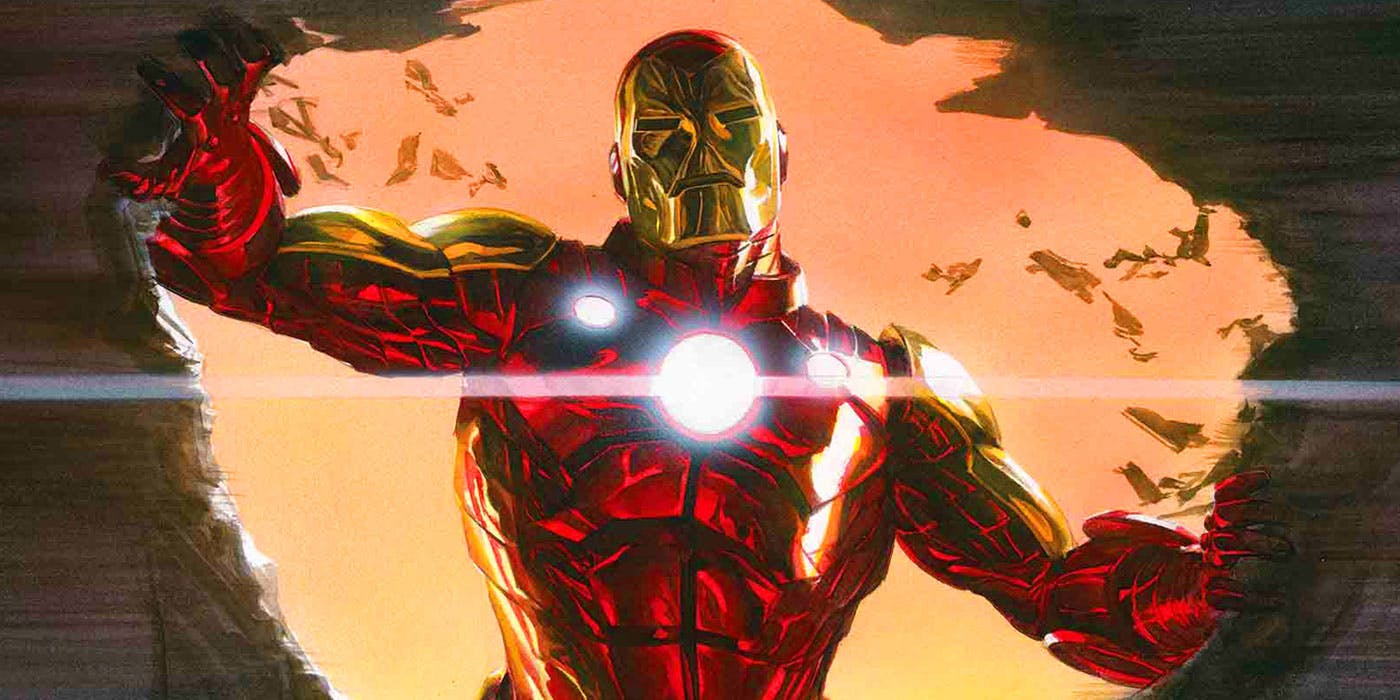
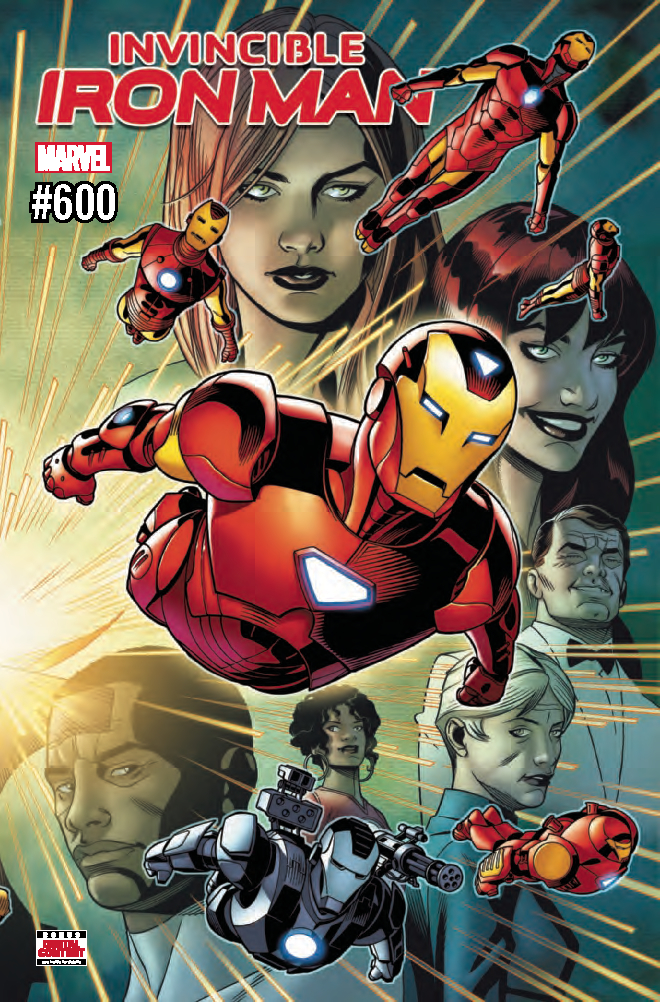
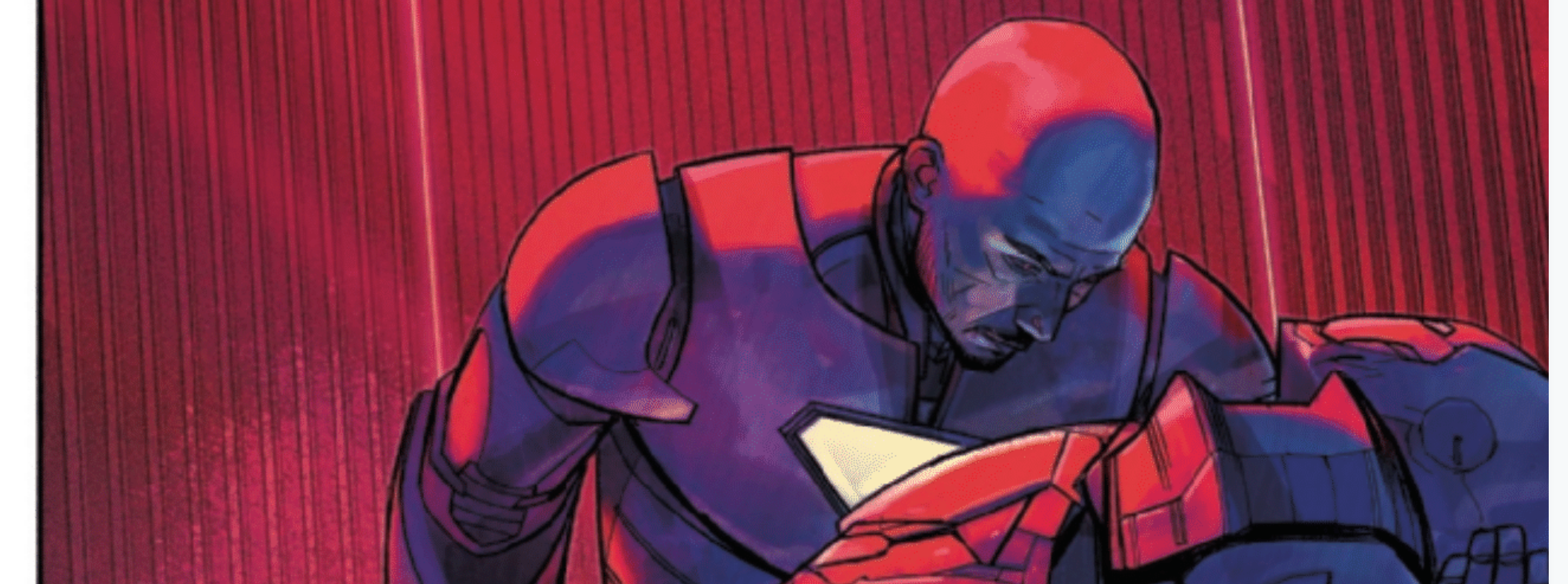
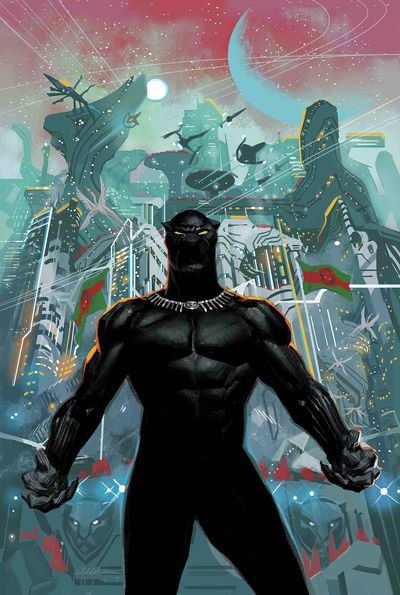

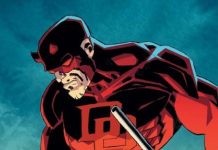

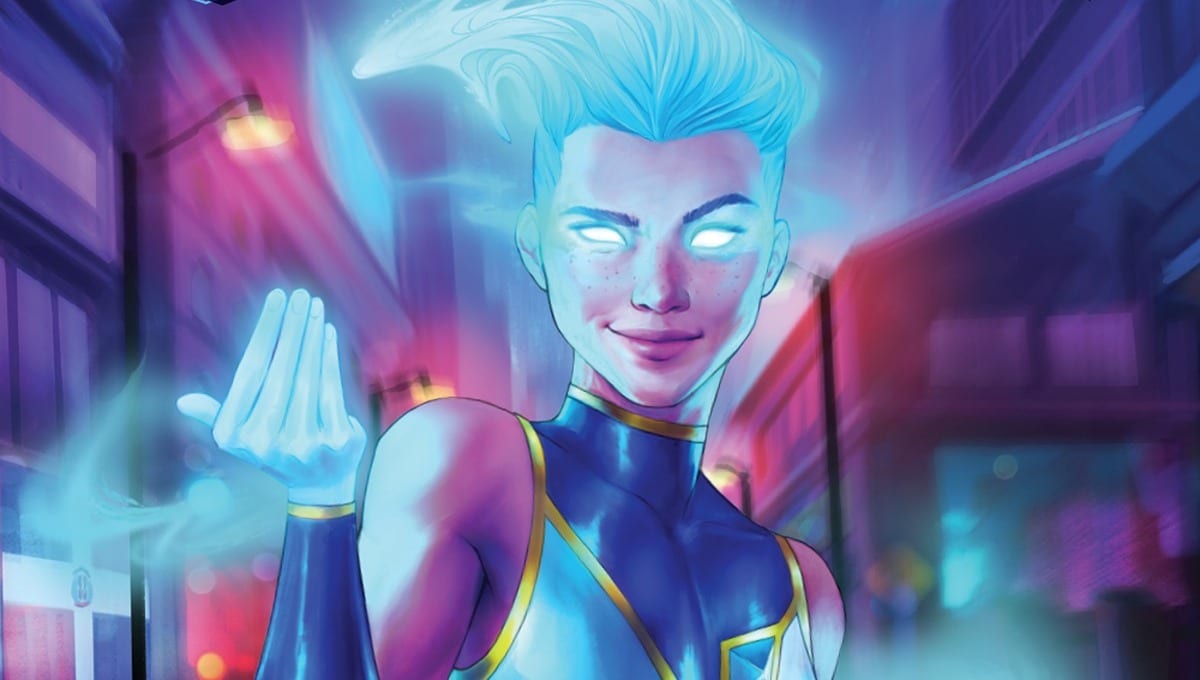



Black Panther sounds interesting. Intergalactic Empire of Wakanda does sound wrong, doesn’t it? A bit East India Trading Company? Sounds like a good mix of things though, and read.
I’m just ecstatic that maybe Marvel will put Parker Robbins (The Hood) back in the toy box for a long time and never let him out again after Iron Man 600. I am so over Bendis’s indulgence of shoehorning him into every title that he has written since New Avengers. He’s not a great villain and after the 12th time he assembles the D and F list villains and they fail, maybe it’s time to stop with that idea.
@DarbyTheHutt truer words have never been spoken!
Iron Man made me want my money back. I couldn’t believe they did that to Doom. Pretty stupid if you ask me. I do not share the Black Panther love here. This seems as ill advised as Iron Man #600. I doubt I will read a second issue. Lucky for Marvel my wife is a huge Black Panther fan so we’ll still buy the book.
The article started by saying that the “age-old Marvel problem is back,” without actually stating what the problem is.
Comments are closed.